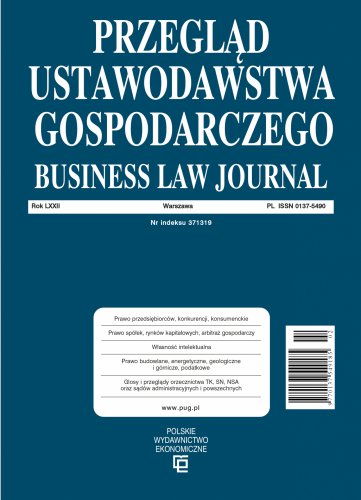Journal of Marketing and Market Studies 08/2022
ISSN: 0137-5490
Pages: 56
Publication date: 2022
Place publication: Warszawa
Binding: paperback
Format: A4
Publication date: 2022
Place publication: Warszawa
Binding: paperback
Format: A4
DOI: 10.33226/0137-5490.2022.8.1
JEL: K23, K32, L43
DOI: 10.33226/0137-5490.2022.8.2
JEL: G21, H53, H81, K39
DOI: 10.33226/0137-5490.2022.8.3
JEL: K15, K22, K34
DOI: 10.33226/0137-5490.2022.8.4
JEL: K14, K42
DOI: 10.33226/0137-5490.2022.8.5
JEL: K200
DOI: 10.33226/0137-5490.2022.8.6
JEL: K13, K15, K39
| Odbiór osobisty | 0 € |
| Kurier Inpost | 4 € |
| Kurier FedEX | 4 € |
| Inpost Paczkomaty | 4 € |
| Free delivery in Reader's Club | from 47 € |

